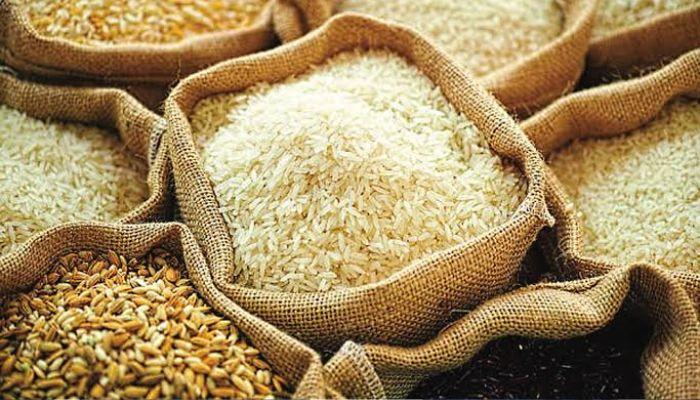Nigeria’s food crisis is deepening. With failed farm loans, worsening insecurity, and collapsing agricultural output, the Federal Government has once again turned to rice imports to calm a storm of hunger and inflation that experts warn could spiral into famine.
A new United Nations report has placed Nigeria among 16 countries facing “very high concern” levels of acute food insecurity between November 2025 and May 2026. The joint FAO/ WFP publication, “Hunger Hotspots: Early Warnings on Acute Food Insecurity,” says millions of Nigerians risk starvation unless urgent measures are taken.
While the UN attributes global hunger to conflict, climate shocks, and economic distress, Nigeria’s crisis, analysts argue, is largely selfinflicted — a product of failed agricultural programmes, poor governance, and persistent violence across foodproducing regions.
Anchor Borrowers collapse, empty promise of self sufficiency
Launched in 2015, the Central Bank of Nigeria’s Anchor Borrowers’ Programme (ABP) was designed to boost smallholder farmers with easy credit and guaranteed markets. A decade later, the scheme has become a symbol of Nigeria’s agricultural disappointment.
Over ₦1 trillion was reportedly disbursed to farmers under the programme. Yet, fewer than one in four loans have been repaid, according to CBN data. Corruption, poor monitoring, and political patronage derailed what was once hailed as a revolutionary policy.
“The idea was sound, but execution destroyed it,” said Dr. Peter Okoh, an agricultural economist at the University of Abuja. “Many beneficiaries were ghost farmers. Those who genuinely farmed lost their lands to banditry. We’ve ended up with food scarcity, high prices, and renewed dependence on imports.”
Insecurity: Nigeria’s biggest barrier to food security
From Kaduna to Zamfara and Benue, years of insecurity have crippled food production. Attacks by bandits and insurgents have driven millions of farmers from their fields, leaving vast farmlands uncultivated.
The UN report noted that violent conflict and mass displacement have severely disrupted local food systems. Nigeria’s agricultural output fell by 17 per cent in 2024, while food inflation surged to 38.7 per cent by mid-2025 — the highest in two decades.
“You can’t grow food where there is fear,” said agricultural consultant, Mrs. Kemi Yusuf. “Farmers are being kidnapped or killed. Rural roads are impassable. Until we fix security and infrastructure, no funding or policy will work.”
Government backtracks on Rice imports
As food prices skyrocket and hunger bites, the government has quietly reversed one of its most symbolic economic policies the rice import ban. Licensed importers have now been allowed to bring rice through land borders in an effort to ease supply shortages and stabilise prices.
The move effectively ends nearly a decade of import restrictions and closed borders aimed at promoting local production. While consumers may welcome cheaper rice, experts warn that the policy U-turn could collapse domestic value chains that never fully recovered from past disruptions.
“We spent years chasing rice self-sufficiency, but failed to protect local farmers from inconsistent policies,” said Dr. Adewale Fashina, a food systems analyst. “Now, with production in ruins, we’re back to importing what we once prided ourselves on producing. It’s a vicious cycle of policy failure.”
UN Warns: Act now or face famine
FAO Director General, Qu Dongyu, has called for a global shift from crisis response to prevention. “We must invest in livelihoods and resilience before hunger peaks. Prevention saves lives and costs less than emergency relief,” he said.
Similarly, WFP Executive Director, Cindy McCain, warned that millions of Nigerian families are already on the brink. “Mothers are skipping meals, so their children can eat. Without immediate intervention, hunger will trigger deeper instability and migration,” she cautioned.
The UN report reveals a global funding shortfall, with only $10.5 billion of the $29 billion required for food assistance secured as of October 2025. The gap threatens to worsen crises across all identified hunger hotspots.
A crisis born of neglect
Experts insist that Nigeria’s hunger crisis was predictable and preventable. With targeted investment in rural security, irrigation, and transparent credit systems, the country could still reverse its decline.
“Famine is not inevitable; it’s a governance issue,” Dr. Okoh said. “If we secure farmlands, fix policy inconsistencies, and invest in real farmers, Nigeria can feed itself again.”
For now, however, Nigeria’s return to rice imports is a sobering symbol of policy failure — and a warning that unless decisive action follows, hunger, not oil, may define the nation’s next decade.















